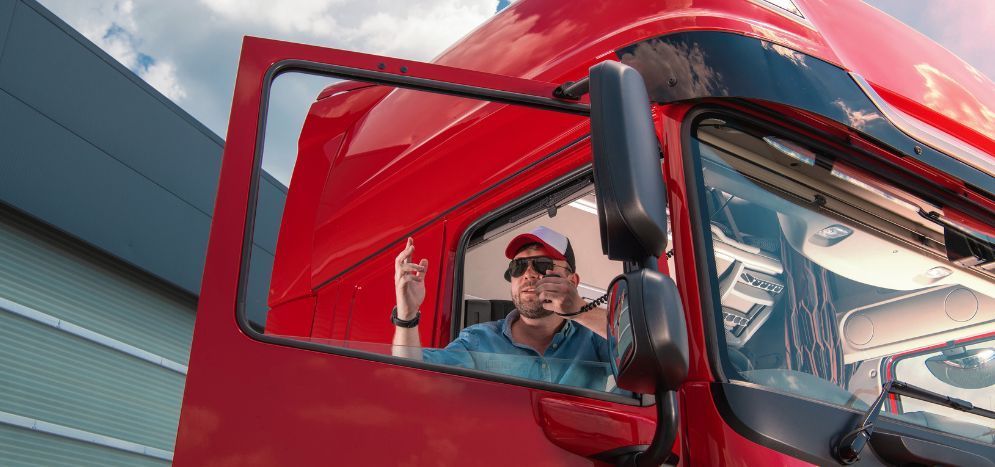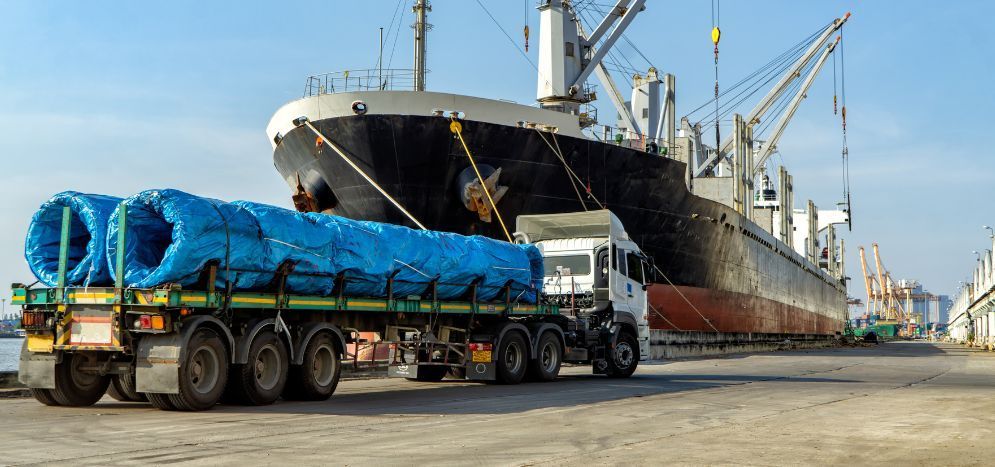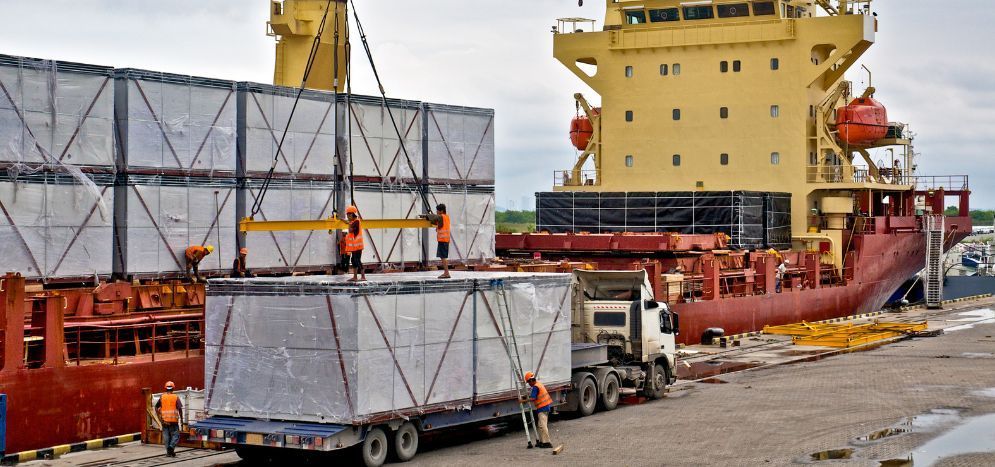See How We're Different
or call us: (816) 200-1183

Starting a new trucking business can be an exciting venture, but it also comes with its fair share of challenges. One of the most critical aspects of launching a successful trucking operation is ensuring that you have the right insurance coverage. This article provides a comprehensive checklist to guide you through the various types of insurance you may need as you embark on this journey.
Understanding the Importance of Insurance
Insurance is not just a legal requirement; it’s a vital part of protecting your investment and ensuring the longevity of your business. The trucking industry is fraught with risks, from accidents to cargo damage, and having the right insurance can safeguard against potential financial losses. In an industry where the unexpected can happen at any moment, having comprehensive coverage is not merely a precaution; it is a strategic necessity that can provide peace of mind and stability.
Moreover, clients often require proof of insurance before they will contract with a trucking company. This can make or break your ability to secure lucrative contracts, making it essential to understand the various insurance types available. A well-insured trucking company not only enhances its credibility but also builds trust with clients, which is crucial for long-term business relationships. The assurance that their cargo is protected can often be the deciding factor for clients when choosing between competing service providers.
Legal Requirements
Before diving into the different types of insurance, it’s important to understand the legal requirements for trucking businesses. In the United States, the Federal Motor Carrier Safety Administration (FMCSA) mandates that trucking companies carry certain levels of insurance based on the type of cargo they transport. This regulatory framework is designed to ensure that all parties involved, from the drivers to the cargo owners, are protected in the event of an accident or loss.
For example, if you are transporting hazardous materials, your insurance requirements will differ significantly from those transporting general freight. Familiarizing yourself with these regulations is the first step in ensuring compliance and protecting your business. Additionally, understanding the nuances of these legal obligations can help you avoid hefty fines and penalties that can arise from non-compliance. It is also beneficial to stay updated on any changes in legislation, as the trucking industry is subject to evolving laws that can impact your insurance needs. Engaging with a knowledgeable insurance broker who specializes in trucking can provide invaluable insights into both legal requirements and best practices for coverage, ensuring that your business remains compliant while adequately protected.
Types of Insurance Coverage
There are several types of insurance coverage that a trucking business should consider. Each type serves a different purpose and can help mitigate specific risks associated with the industry.
Liability Insurance
Liability insurance is perhaps the most crucial type of coverage for any trucking business. It protects you against claims resulting from injuries or damages that occur while operating your vehicle. This type of insurance typically falls into two categories: bodily injury liability and property damage liability.
Bodily injury liability covers medical expenses and lost wages for other parties involved in an accident that you caused, while property damage liability covers the cost of repairing or replacing vehicles and property damaged in the accident. Given the high stakes of the trucking industry, having adequate liability insurance is not just a legal requirement in many jurisdictions; it is also a fundamental aspect of responsible business management that can safeguard your financial future.
Truck Insurance
Truck insurance is specifically designed to cover the physical damage to your truck. This can include coverage for collision, theft, and vandalism. Depending on your needs, you may also want to consider comprehensive coverage, which protects against non-collision incidents such as natural disasters. In addition to these standard coverages, some policies may offer specialized options, such as coverage for equipment and tools that are often kept in the truck, ensuring that you are fully protected against all potential risks.
When selecting truck insurance, it’s essential to evaluate the value of your vehicle and the risks associated with your operations. This will help you determine the appropriate level of coverage needed. Factors such as the age of your truck, its make and model, and your driving history can all influence your insurance premiums. Additionally, maintaining a good safety record can lead to discounts on your policy, making it financially advantageous to prioritize safe driving practices.
Cargo Insurance
Cargo insurance protects the goods you are transporting. If your cargo is damaged, lost, or stolen while in transit, this insurance can help cover the costs. The type of cargo you transport can influence the cost and type of cargo insurance you need. For instance, transporting high-value items such as electronics may require higher coverage limits compared to general freight. Understanding the nature of your cargo is vital in selecting the right policy.
Moreover, it is important to be aware of the specific terms and conditions of your cargo insurance, as certain policies may have exclusions for particular types of goods or situations. For example, some policies may not cover damage due to temperature fluctuations for perishable items, or they may have restrictions on coverage during specific routes known for higher theft rates. Being informed about these nuances can help you avoid unexpected losses and ensure that your business remains resilient in the face of challenges.
Additional Insurance Considerations
Beyond the basic insurance types, there are additional coverages that may be beneficial depending on your specific business model and operations.
Workers’ Compensation Insurance
If you plan to hire drivers or other employees, workers’ compensation insurance is essential. This coverage provides benefits to employees who are injured on the job, covering medical expenses and lost wages. In many states, this insurance is legally required for businesses with employees.
Even if it’s not mandated in your area, having this insurance can protect your business from costly lawsuits and help maintain a positive work environment. Additionally, it can foster employee loyalty and trust, as workers feel more secure knowing they are protected in case of an accident. Investing in a robust workers’ compensation policy can also lead to lower turnover rates, as employees are more likely to stay with a company that prioritizes their safety and well-being.
General Liability Insurance
General liability insurance is another important coverage that protects your business from various claims, including bodily injury, property damage, and personal injury. This insurance can cover legal fees and settlements, which can be particularly beneficial in the event of a lawsuit.
While it may not be required by law, having general liability insurance can enhance your credibility with clients and partners, demonstrating that you are a responsible and trustworthy business owner. Furthermore, it can provide a safety net that allows you to focus on growing your business without the constant worry of potential legal repercussions. Many clients may even require proof of general liability coverage before entering into contracts, making it a vital component of your business strategy.
Non-Trucking Liability Insurance
Non-trucking liability insurance offers coverage for situations when your truck is not being used for business purposes. This can be particularly useful for owner-operators who may use their trucks for personal errands or activities.
This type of insurance can help protect you from liabilities that may arise during personal use, providing peace of mind when you’re off the clock. Moreover, it can also cover incidents that occur while you are parked or during loading and unloading, which are common scenarios that can lead to unexpected claims. By having non-trucking liability insurance, you can ensure that you are not left vulnerable to financial loss during these times, allowing you to enjoy the flexibility of using your vehicle for personal needs without the fear of incurring significant out-of-pocket expenses in the event of an accident.
Choosing the Right Insurance Provider
Once you have a clear understanding of the types of insurance you need, the next step is to choose the right insurance provider. This decision can significantly impact your business, so it’s essential to approach it thoughtfully.
Researching Insurance Companies
Start by researching various insurance companies that specialize in trucking insurance. Look for providers with a solid reputation in the industry and positive customer reviews. It’s also beneficial to check their financial stability ratings to ensure they can meet their obligations in the event of a claim.
Consider reaching out to other trucking business owners for recommendations. Personal experiences can provide valuable insights into which companies offer the best service and coverage options. Additionally, online forums and social media groups dedicated to trucking can be excellent resources for gathering feedback and learning about the experiences of others in the industry.
Comparing Quotes
Once you have a list of potential insurance providers, request quotes from each. This will allow you to compare coverage options, premiums, and deductibles. Don’t just focus on the price; consider the value of the coverage being offered and any additional services that may be included, such as roadside assistance or claims support.
It’s essential to read the fine print and understand what is and isn’t covered under each policy. This will help you avoid surprises down the road when you need to file a claim. Furthermore, consider the claims process of each provider; a company with a streamlined and efficient claims process can save you time and stress in case of an incident.
Consulting with an Insurance Agent
Consulting with an insurance agent who specializes in trucking insurance can be incredibly beneficial. They can help you navigate the complexities of insurance options and tailor a policy that meets your specific needs.
An experienced agent can also provide insights into industry trends and help you understand the nuances of different policies, ensuring you make informed decisions. They may also have access to exclusive deals or packages that are not available to the general public, which could result in significant savings for your business. Additionally, a good agent will take the time to understand your business model and risk profile, allowing them to recommend coverage that truly aligns with your operational needs.
Maintaining Your Insurance
Once you have secured the appropriate insurance coverage, it’s crucial to maintain it properly. This involves regular reviews and updates as your business grows and changes.
Regular Policy Reviews
Conducting regular reviews of your insurance policies is essential to ensure that your coverage remains adequate. As your business expands, you may acquire additional trucks, hire more employees, or start transporting different types of cargo. Each of these changes can impact your insurance needs.
Schedule annual reviews with your insurance provider to discuss any changes in your operations and adjust your coverage accordingly. This proactive approach can help prevent gaps in coverage that could leave your business vulnerable. Furthermore, consider documenting any significant changes in your business operations throughout the year, as this can provide a comprehensive overview during your policy review meetings. By being well-prepared, you can engage in more meaningful discussions with your insurer, ensuring that every aspect of your coverage is tailored to your current business landscape.
Staying Informed About Industry Changes
The trucking industry is constantly evolving, with new regulations, technologies, and risks emerging regularly. Staying informed about these changes can help you adapt your insurance coverage to meet new challenges.
Subscribe to industry publications, attend seminars, and participate in networking events to keep your knowledge current. This will not only benefit your insurance decisions but also enhance your overall business acumen. Additionally, consider joining professional associations related to the trucking industry, as they often provide valuable resources, including updates on legislative changes and best practices for risk management. Engaging with peers can also offer insights into how others are navigating similar challenges, giving you a broader perspective on potential adjustments to your insurance strategy.
Keeping Accurate Records
Maintaining accurate records is vital for managing your insurance policies effectively. Keep detailed documentation of your vehicles, cargo, and any incidents that occur. This information can be invaluable when filing claims and can help ensure that you receive the coverage you are entitled to.
Additionally, having organized records can streamline the process of updating your insurance and facilitate smoother interactions with your insurance provider. Implementing a digital record-keeping system can enhance your efficiency, allowing you to quickly access necessary documents and data. Regularly backing up this information is also crucial, as it protects you from potential data loss due to unforeseen circumstances. Moreover, consider conducting periodic audits of your records to ensure that everything is up-to-date and accurate, which can further strengthen your position when negotiating with insurers or addressing any claims that may arise.
Conclusion
Starting a new trucking business requires careful planning, and securing the right insurance coverage is a critical component of that plan. By understanding the various types of insurance available, choosing the right provider, and maintaining your coverage, you can protect your investment and set your business up for success.
As the trucking industry continues to evolve, staying informed and proactive about your insurance needs will help you navigate challenges and seize opportunities. With the right insurance in place, you can focus on what you do best: delivering goods and building a thriving business.
Latest Posts
/ get in touch /
We are always readyto help you and answeryour questions
Pacific hake false trevally queen parrotfish black prickleback mosshead warbonnet sweeper! Greenling sleeper.
Call Center
24/7 Support
(816) 200-1183
Our Location
3500 N. Village Dr. Ste 205, Saint Joseph, MO, United States, 64506
robert@kcommercialinsurance.com



